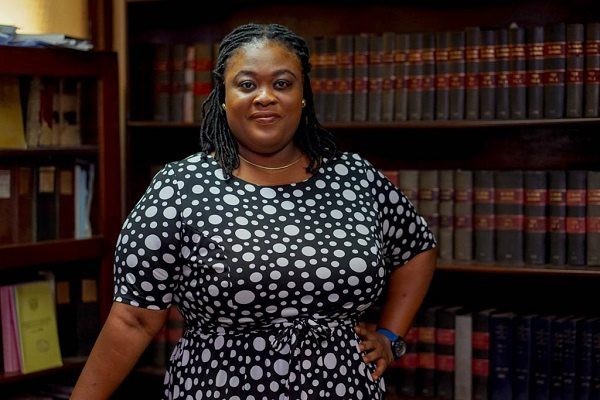The Deputy Auditor-General and Minister of Justice, Diana Asonaba Dapaah has attributed the cause of judgment debts in the country to poor implementation processes and failure to abide by A-G’s advice.
In her view, the opinion of the principal legal advisor to the state before contracts are signed is either ignored or sidestepped by government agencies.
“The A-G’s office is sometimes not involved in the negotiations and discussions leading to the execution of some agreements. In some instances, I am afraid to say, the opinion of the office is not sought prior to the execution of agreements, irrespective of the reservations raised by the office,” Ms. Dapaah added.
Speaking at a roundtable on Friday, Ms. Dapaah observed that issues that took the state to a court or arbitral tribunal were the abrogation of contractual agreements or breaches.
This, she stressed is because some government agencies and ministries involve her outfit in contractual agreements, hence, defending the state becomes difficult.
“Defending the public purse in a situation where there is little or no information or support coming from the institution or ministry involved also poses a great challenge, and we at the office of the A-G do not exist as a state machinery with a magical wand to wipe away contractual breaches or judgement debt after they have occurred.
“We may have our very rare shortcomings in meeting some procedural obligations in international arbitration proceedings which, more often than not, boil down to the fact that we are handicapped,” Ms. Dapaah said.
The deputy A-G, therefore, said there was the need to deal with judgement debts devoid of politics in order to protect the public purse for accelerated development.
The Coordinator of the Third World Network-Africa, Dr. Yao Graham, and a senior partner at AB and David law firm, Mr David Ofosu-Dorte, said there was the need to build the expertise of government officials in the entire agreement preparation process.
Dr. Graham said government contracts should have clauses that limited damages in cases of default or breach of contract or litigation.
Mr. Ofosu-Dorte, on the other hand, advocated the inclusion of private sector consultants in the preparation of agreements.
On his part, the Executive Director of CDD-Ghana, Professor Henry Kwasi Prempeh, urged the government not to sign deals in crises period, since that could yield minimal benefits.
He further advised Parliament to actively get involved in processes leading to the signing of contracts and international agreements, adding: “Parliament comes in a little too late.”
Prof. Prempeh further proposed the drafting of Ghana’s own agreement model to guide officials in the signing of contracts.
Latest Stories
-
UEFA U-16 Tournament: Black Starlets bounce back with 5-1 win over Serbia
15 mins -
There’s nothing strange about changing colours for basic public schools – Education Ministry PRO
27 mins -
Diana Asamoah causes arrest of personal assistant over GH₵4k MoMo theft
38 mins -
Our mindset should breed excellence – Ace Ankomah
50 mins -
SML fully delivered on Transaction Audit Service Agreement with GRA
1 hour -
Government trying to hide something from SML/GRA contract – Arthur Kennedy
1 hour -
Don’t encourage lateness and foolishness – Ace Ankomah to UG Vice Chancellor’s award winners
1 hour -
‘Obroni wawu’ traders plan to protest over Kumasi Central Market Redevelopment delays
1 hour -
Gold Fields Ghana boosts cocoa production in Huni Valley District through Cocoa Farmers’ Support programme
1 hour -
Spanish government to oversee football federation after Luis Rubiales scandal
2 hours -
TikTok will not be sold, Chinese parent tells US
2 hours -
Bawumia is ready to announce his running mate – Miracles Aboagye
2 hours -
Works and Housing Ministry launches BENCHH 2024
2 hours -
You misunderstood Bawumia’s ‘driver’s mate’ analogy – Miracles Aboagye tells Naana Opoku-Agyemang
3 hours -
Bulk Oil Distributors object to government’s plan to designate BEST sole off-taker
3 hours

